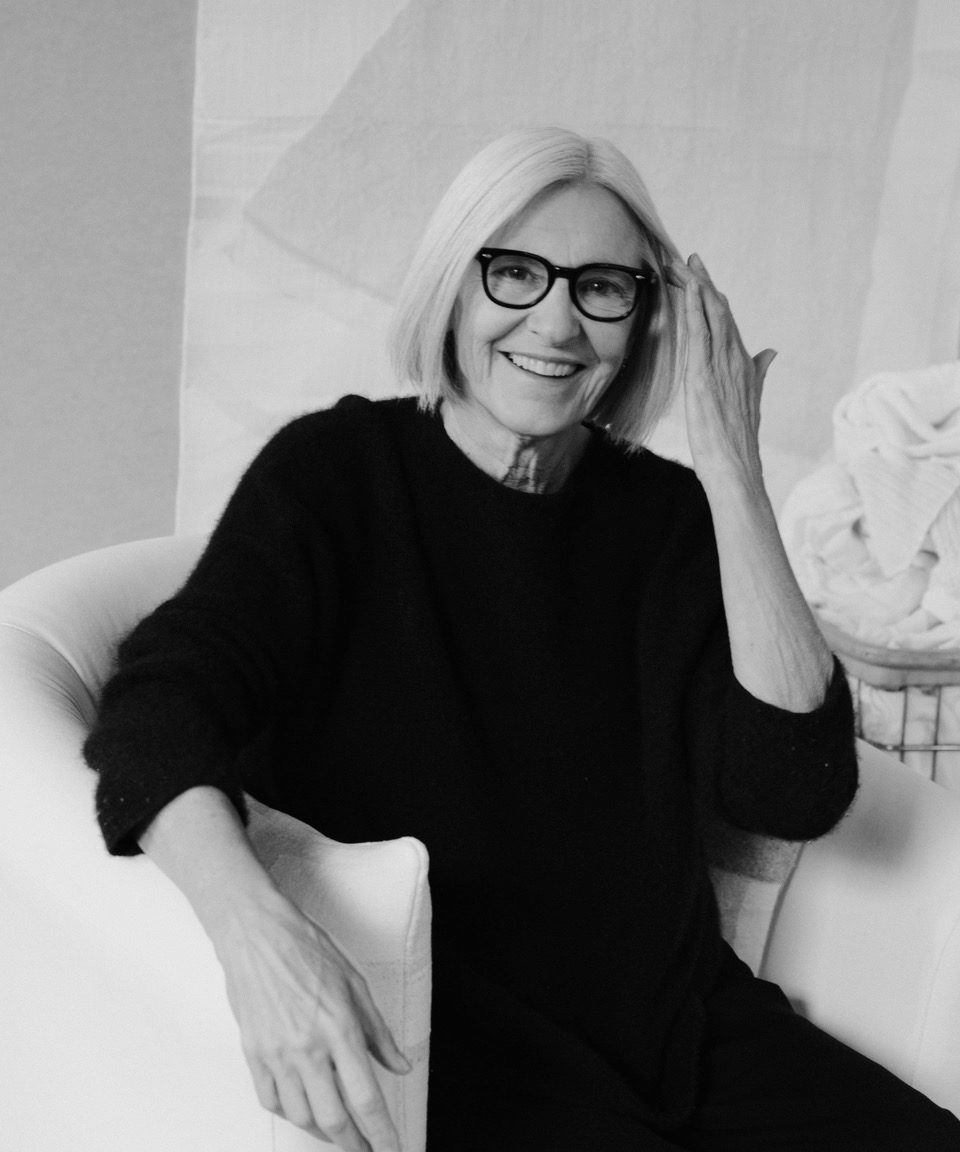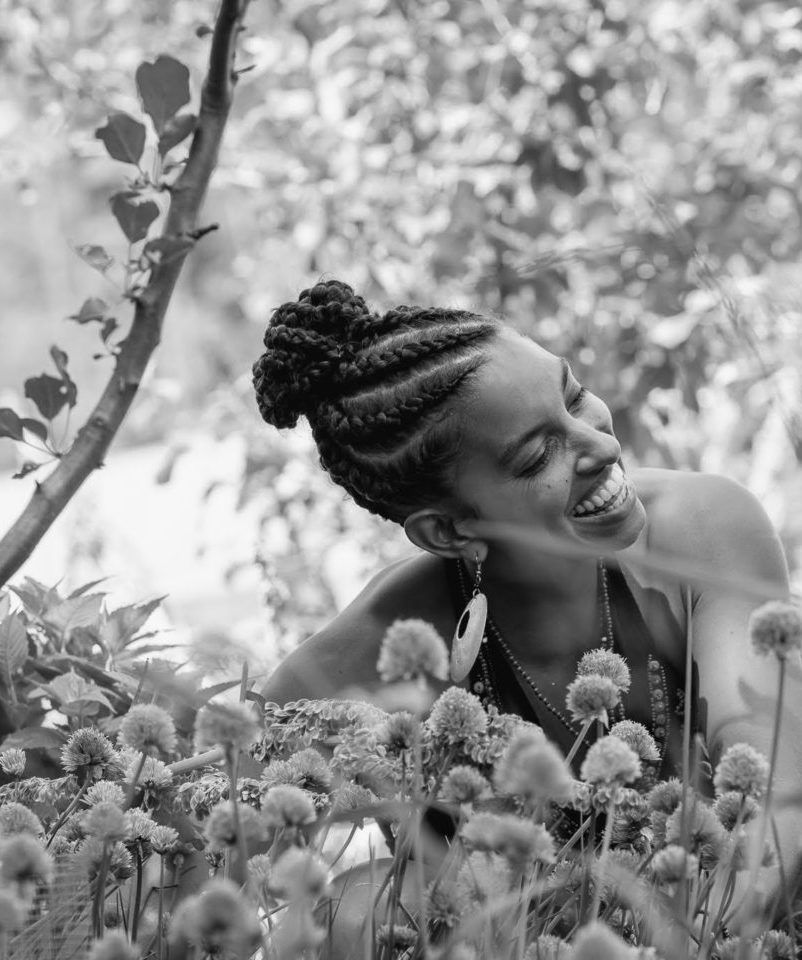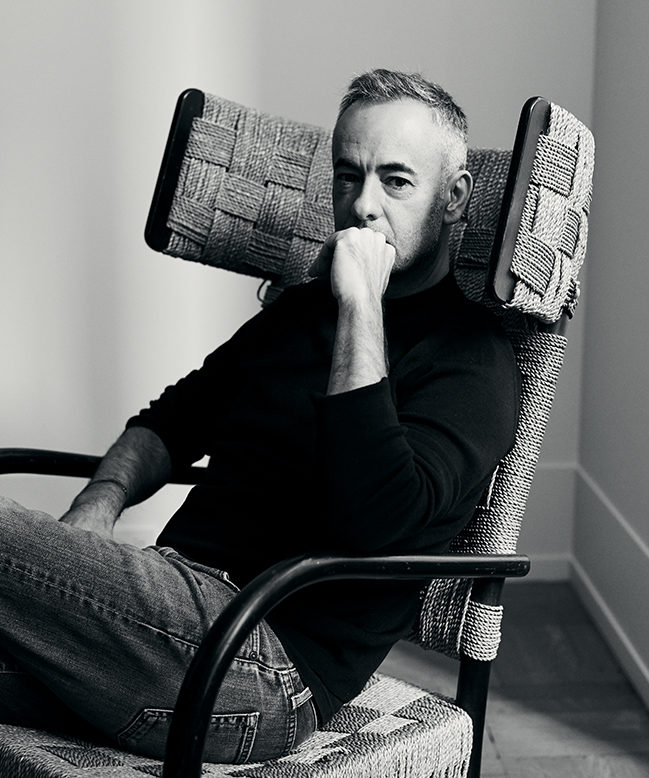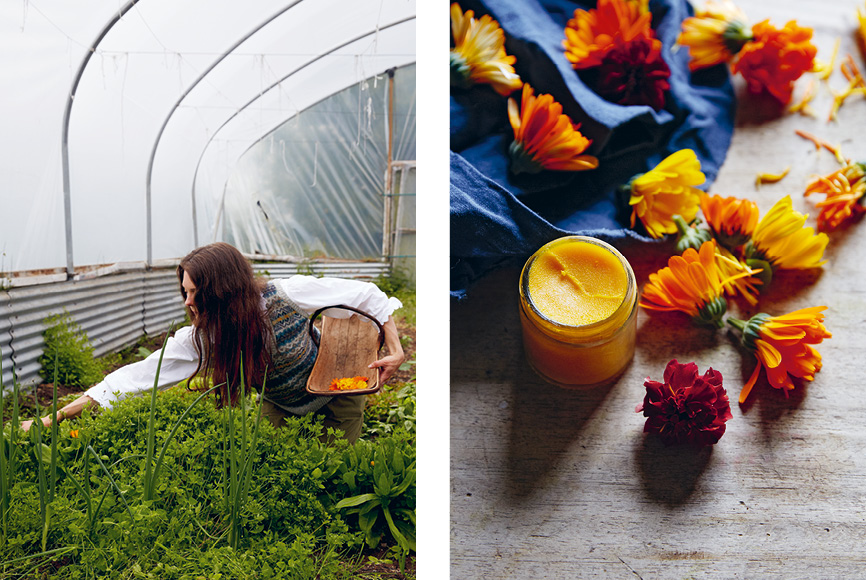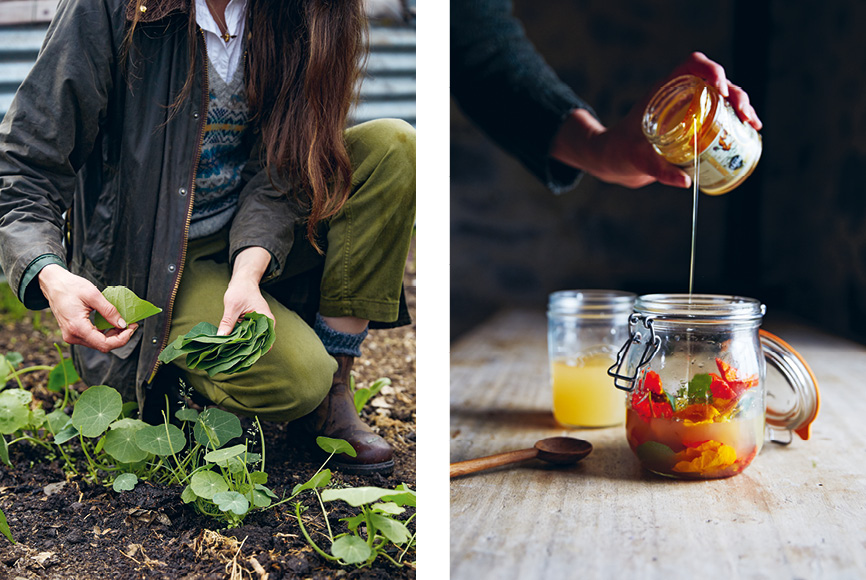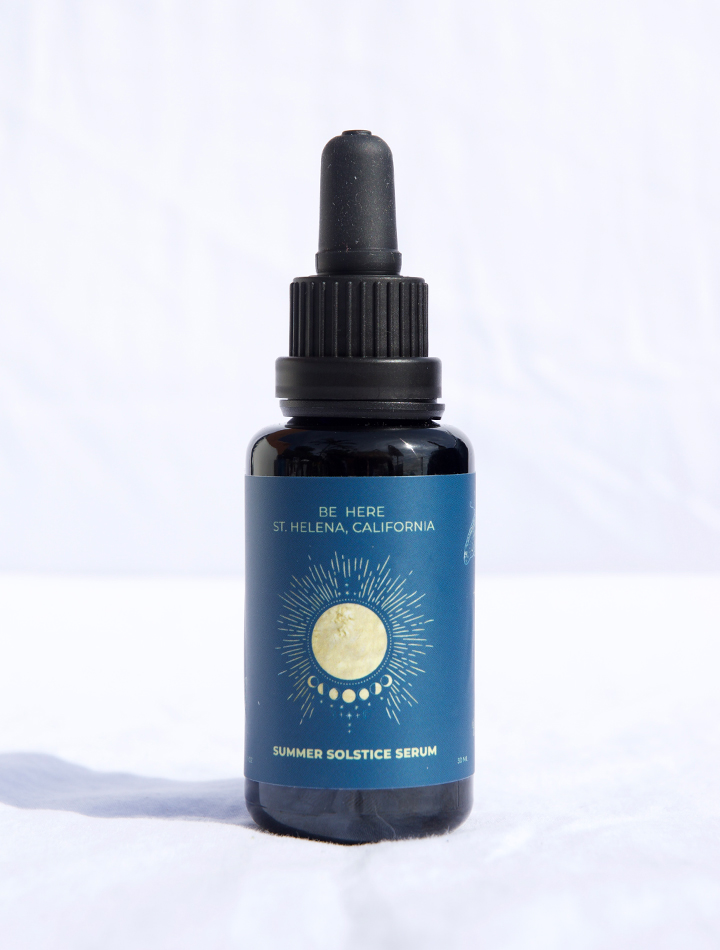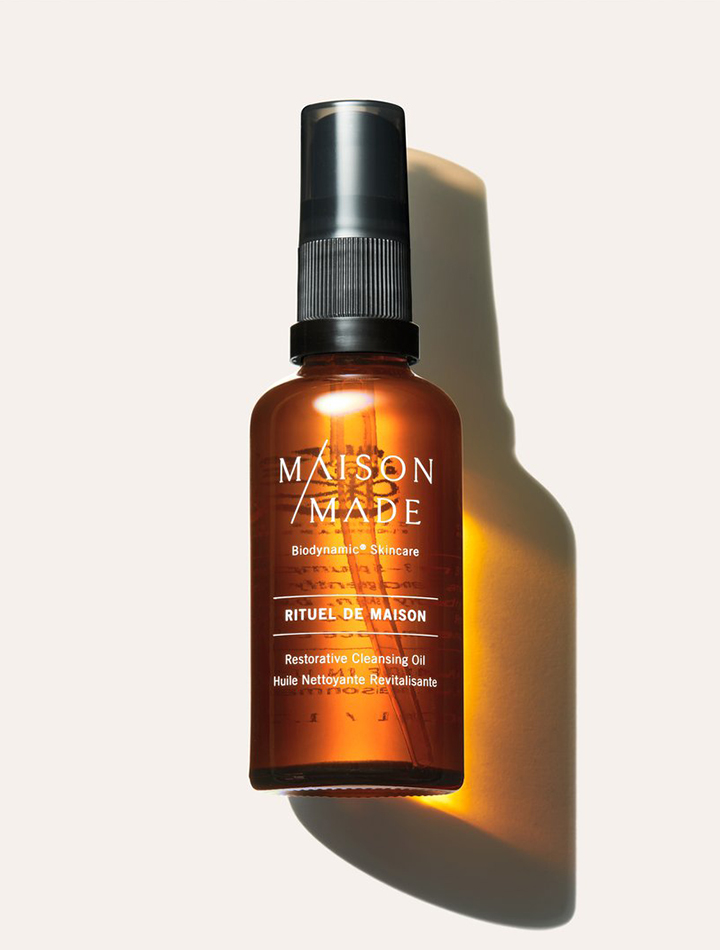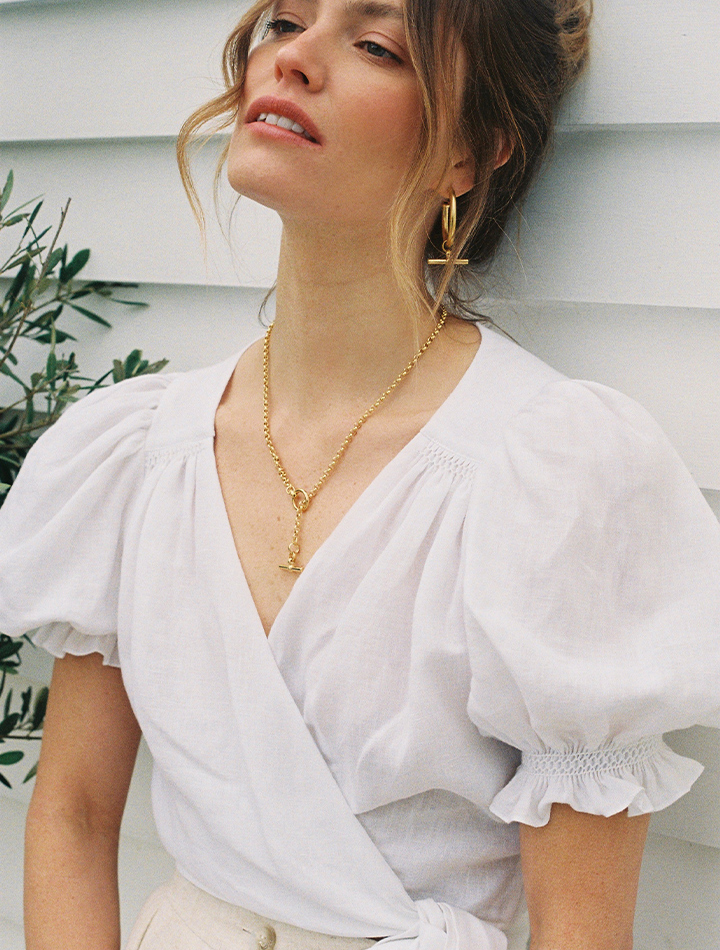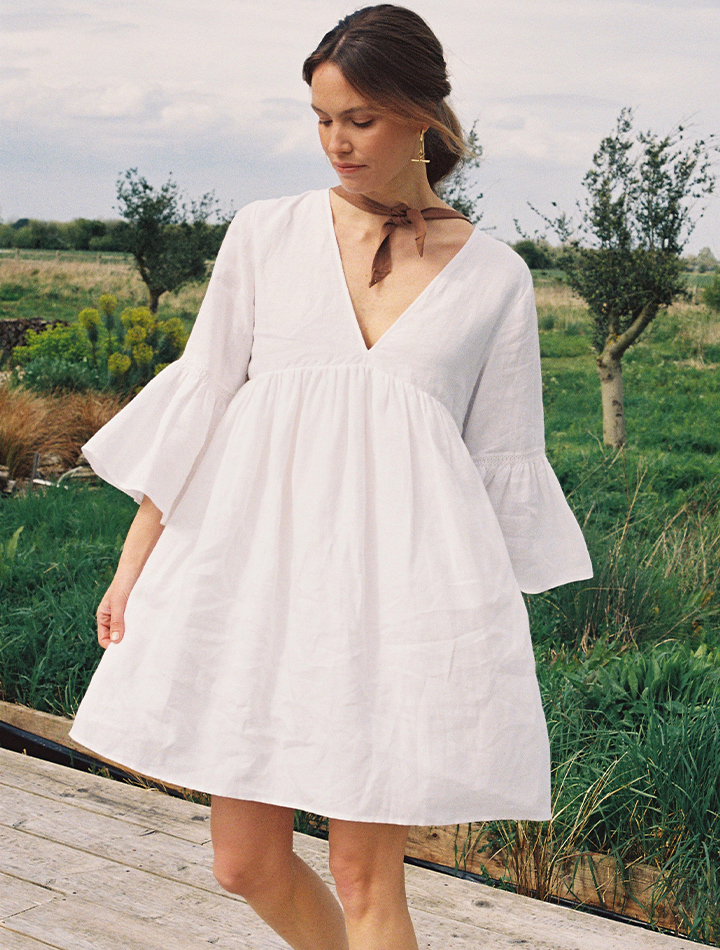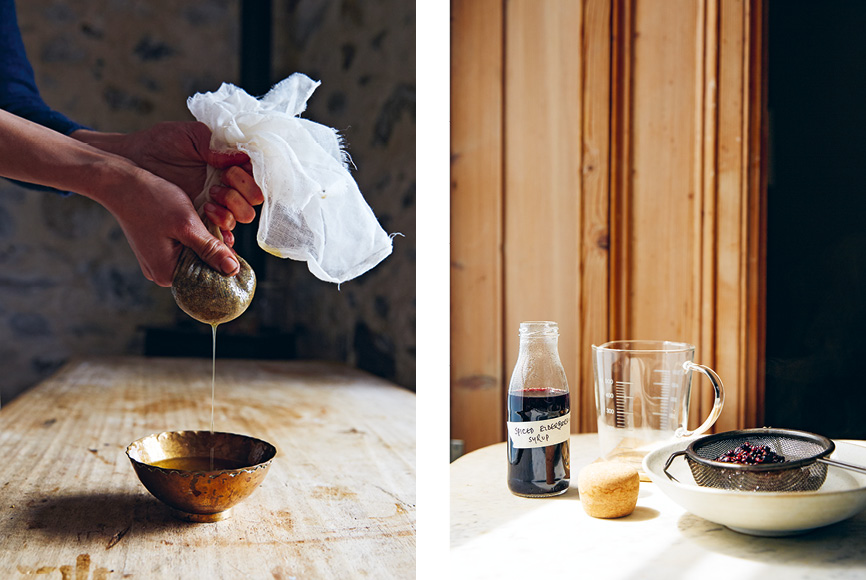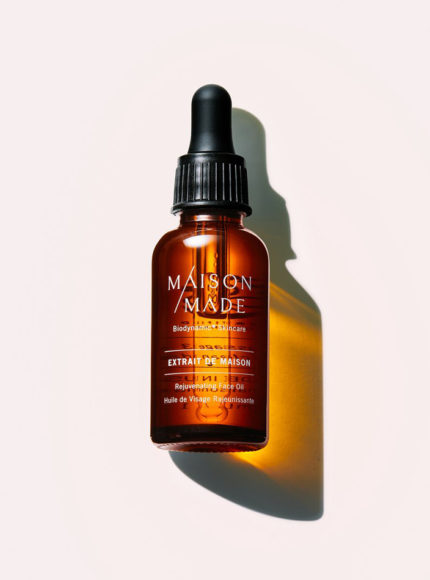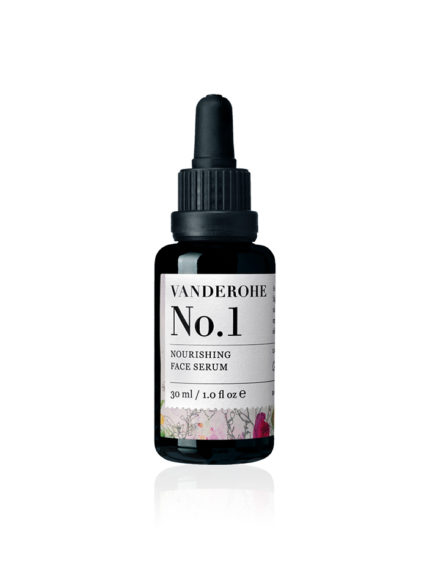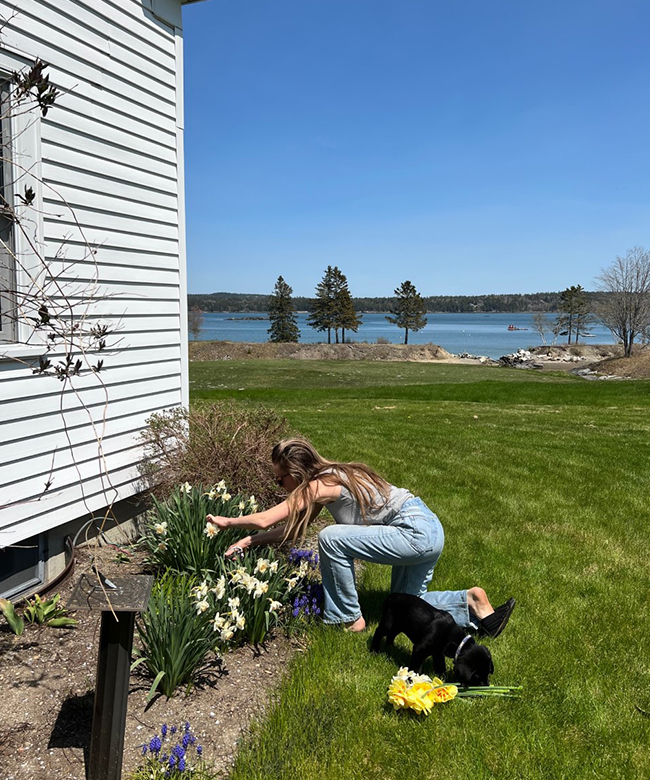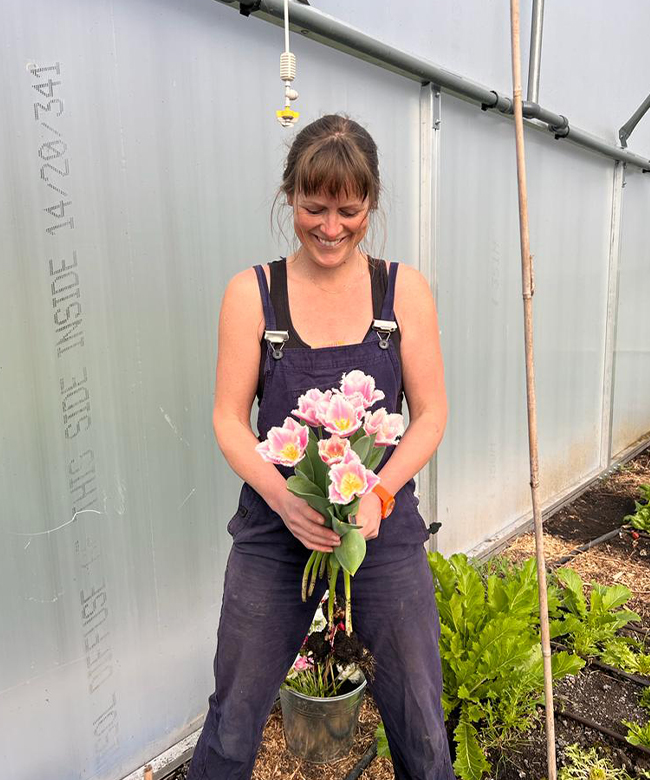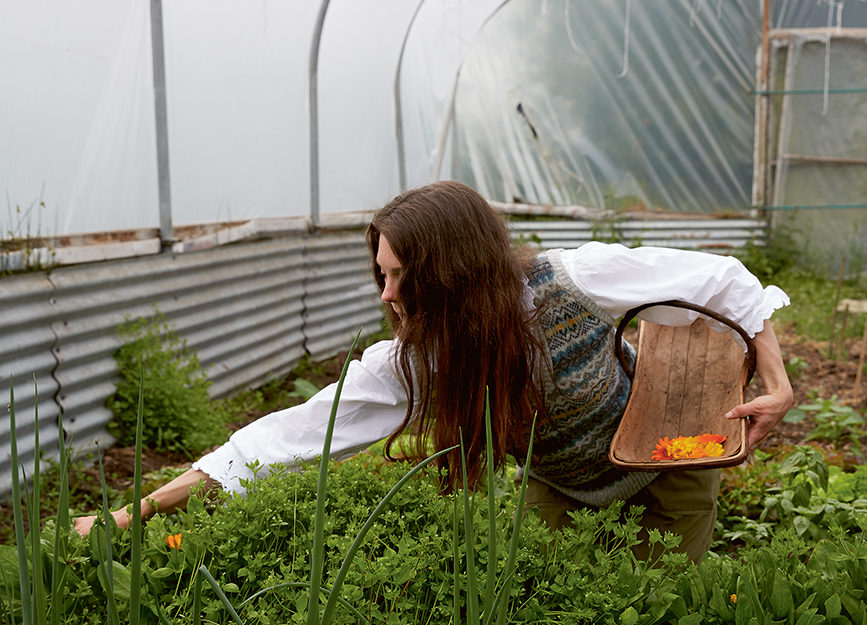

@beckyocole
@beckyocole


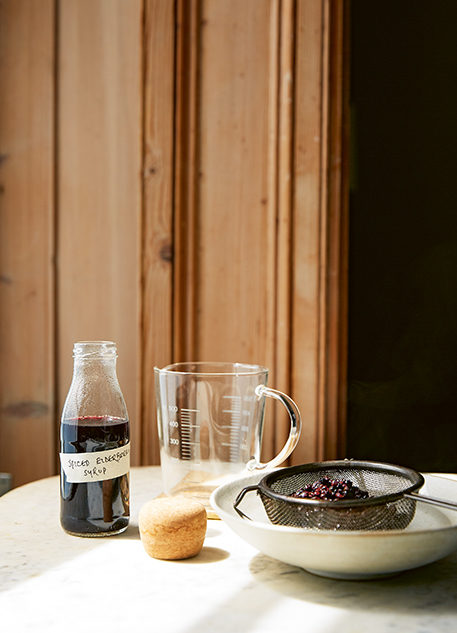

@beckyocole
Food & Garden
Thriving On Plants with Becky Cole of Garden Apothecary
We talk to Becky Cole of Garden Apothecary about how to heal and maintain great health with plants, and how to grow your own herbs and flowers. This editorial is so inspiring for anyone looking to revitalise with a more holistic approach to well-being, and also a great tutorial about how to start thinking about living in harmony with nature and all she has to offer. And don’t forget that Becky’s book The Garden Apothecary is great resource for this!
“I’ve always had a very deep connection to nature, even when I was young. As a child, growing up in the Irish countryside, I would spend my free time collecting wildflowers, chatting to plants, and napping in our meadow. It was a very idyllic childhood with a lot of free time to develop that nature connection which I’m so grateful for today.”
Becky Cole
First of all, can you let us know how you ended up in farming and with a specific eye to regenerative agriculture?
I never imagined myself as a farmer however I was always interested in plants, food and the environment. I had a countryside upbringing and my father was a leading scientist and professor in environmental engineering so eco-living was something I was always familiar with. I ended up studying at art college and after graduating I met my now husband Charlie. It was love at first sight, and while I was working in a city at the time, he was just starting up a farm business called Broughgammon Farm on the North coast of Ireland. I ended up moving up to the farm and I sort of tumbled into the lifestyle! Both Charlie and I have now been working together for around a decade to create a forward thinking farm that uses regenerative and permaculture principles. It’s so important to both of us that we farm in a way that benefits the natural world and gives back to the land. So, we spend a lot of time thinking about the soil health and local wildlife and finding ways to support that.
Can you begin by telling us a bit about your personal connection to farming – how did your creative spirit with the natural world evolve?
I’ve always had a very deep connection to nature, even when I was young. As a child, growing up in the Irish countryside, I would spend my free time collecting wildflowers, chatting to plants, and napping in our meadow. It was a very idyllic childhood with a lot of free time to develop that nature connection which I’m so grateful for today. I remember once as a child I even set up a ceremony to marry the trees! Some time, when I was about 8 years old I came across a book by the herbalist Juliette de Baïracli Levy. It was a beige covered hardback, very indistinct and hidden on the top shelf of my parents library but once I opened it, it was a whole world that opened out to me. Full of herbs and their medicinal uses, I felt an immediate pull towards its contents and that’s when I started my journey with herbs. From there I have now gone on to study for many years and it’s very surreal to say that I have just realised my own book on herbalism called The Garden Apothecary. I hope that it will inspire others to love plants as much as I do and create their own herbal journey.
What does slow living mean to you?
For me slow living is really about living a meaningful life, letting go of some of the external pressures that society and the commercial world can place on us and finding pure joy in the simple everyday things, such as brewing a cup of tea, doing the laundry, waking up and seeing the sun shine through the curtains. Our lives are so fast paced that I think the ideas behind slow living can be a real essential way of grounding ourselves into the now.
How can we all work to connect to nature more in our own lives?
I think it’s important we create our own relationships with nature. It doesn’t have to look a certain way or be instagrammable but once we find our own gateway into nature then I think we can develop that into a deep relationship with the natural world. The first thing to do is find that gateway. For example if you are very artistic you could paint, sketch nature/local plants and enjoy their colours and textures. If you love cooking then foraging could be a gateway into nature connection. Or perhaps you love writing, then spending time in nature and keeping a journal about what you see could be a way of deepening that connection. Personally I recommend a nature walk, a regular one in the same area so you can notice all the little changes that occur as the months go by and the seasons develop. I also have a regular mini series all about seasonal nature connection on my podcast, Nature & Nourish.
You have two young children – how do you engage them with nature and sustainable living?
I am a mummy to Rupert (5) and Toby (2) and they are alongside me during my day, so plenty of sowing and planting in the polytunnel, foraging, cooking… They see and do it all! I think children love being outdoors, getting their hands dirty and seeing where food comes from so it never feels difficult to get them excited about learning about nature. I actually set up a Nature Kids Club and Little Farmers club recently where I invite other children over to the farm to enjoy the beautiful surroundings, do nature crafts and get to feed the animals. It’s such a joy to see children enjoying the farm and countryside.
How important is seasonality when it comes to living in harmony with nature and more sustainably?
Seasonality is so key as it shows the ebb and flow of nature. When I first moved to the farm it’s where I began my journey. I learnt about seasonal eating and realised the importance of eating locally produced where possible.From there I began to reflect the seasons into my own days, so for example in winter I like to spend more time inside, relaxing and taking it easy while in spring I very much feel that exciting energy and am busy sowing and tending to the animals. One of my favourite things to do is to create seasonal rituals to bring me through the year. It’s really enhanced my life.
Just speaking a bit to your personal experience, we read on your site that you were previously living in the city and also suffering from Hashimotos – can you speak a bit to how you worked with natural living and herbalism to overcome the issues you had?
Yes I got an autoimmune condition when I was pretty young and working on my undergraduate degree. I am a big believer that everything happens for a reason and there are lessons in all the challenges thrown our way. The autoimmune condition is the reason I am here today, podcasting, on the radio and being interviewed on your website! It got me started on my journey of natural wellness, I learnt how to cook better, to make my own remedies and natural skincare and most importantly it taught me about slow living. The journey of healing myself has been so eye opening, reconnecting with my body, returning to the seasons and leaning into the natural world. I have to say that I am grateful for it, for bringing me on this journey of healing. At the moment I am very lucky that I have worked with incredible nutritionists, naturopaths and functional doctors that have helped me bring my antibodies down and increased my health back to full vitality.
“Both Charlie and I have now been working together for around a decade to create a forward thinking farm that uses regenerative and permaculture principles. It’s so important to both of us that we farm in a way that benefits the natural world and gives back to the land. So, we spend a lot of time thinking about the soil health and local wildlife and finding ways to support that.”
How do you think the food we eat affects our overall well-being….and how have you experienced this personally as you have begun growing your own sustainable food?
The food we eat is the fuel for our bodies. I see it as absolute paramount that we eat food grown on healthy soil. Unhealthy soil produces food that has low nutrients and crops that have been sprayed in pesticides are a no-go in my house. I just wouldn’t want to put that kind of thing into my body or my familys. Then of course there’s the taste, whenever I end up with a vegetable from the supermarket I’m always shocked at how bad it tastes in comparison to our homegrown produce.
And we know you are a fan of natural skincare – can you also speak a bit about the connection to the food we eat with skincare concerns and outcomes?
Personally I love to change up my skincare at the change of each season just like I do my food. The adjustments in day length, warmth, as well as central heating all play an enormous role in how our skin behaves and as a result we need different things from our cleansers, scrubs, body creams and facial oils come each new season. I also take into account my emotions and reflect this in the aromatherapy side of my natural skincare routine. Homemade skincare is completely custom made for you, smells incredible and is all natural. What’s not to love!
My skincare routine used to be so complicated and expensive, it was only when I embarked on my natural living journey that I started to minimise and make natural swaps. Once I saw the results I was hooked and now I make most of my products, from skin oils to lip balms and everything in between!
Are there any very easy vegetables you would recommend anyone try growing?
I find most vegetables are pretty easy to grow, but I do recommend radishes as they have such a quick germination rate and are pretty foolproof. You can grow them in empty cardboard egg boxes on a windowsill, so they are suitable for all spaces. I love eating them in salads but they are also delicious roasted.
Can you tell us a bit about what we will find in your upcoming book, the Garden Apothecary?
Yes I’m thrilled to announce that my first book, The Garden Apothecary is arriving this Spring. When I initially brewed up the idea for this book I had a vision of enabling people to create their own abundant home apothecaries, filling kitchen shelves with jars of powerful herbs using plants grown in their gardens, wild spaces or window boxes. From aromatic teas to potent tinctures I’ve covered a wide array of herbalist techniques alongside my favourite cornerstone recipes that will create the backbone of your herbal apothecary and can be adapted with the ebb and flow of the seasons. There’s tutorials for resinous ointments, luscious botanical oils, balancing teas to brew during the equinox and quick fixes for colds as well as herbal first aid recipes and stories of my own journey with plants. My hope with this book was to create a gentle but rich and beautiful guide to herbalism from my garden to yours. Within the book there are lots of beautiful photographs of my springtime polytunnel, the wild Northern Irish hedgerows as well as atmospheric recipe shots. The Garden Apothecary is the perfect companion for any gardener, plant lover or budding herbalist who wants to weave plant ritual and herbal medicine into their every day. I hope it will accompany the reader on a year of plant exploration, medicine making and nature connection.
What is one of the best herbs we could be incorporating into our diets for a bit of extra health?
There’s a saying amongst herbalists that when in doubt use nettles. Once you learn the health benefits of this humble and abundant herb you’ll realise why. Nettle contains a rich array of vitamins, protein and minerals and is often used as a general health tonic especially for women and the convalescing, an adrenal soother, against hay fever and allergies and also for the kidneys and liver. I love nettle as a mother’s tonic-it can help with post birth bleeding, iron levels and producing breast milk. It’s also gentle and safe to consume throughout pregnancy and after and I currently have many blends containing this lovely nourishing herb. If you find yourself feeling burnt out then nettle is a great remedy as well. Its nourishing effects on the adrenals means it’s the perfect choice when your feeling run down and tired by external stresses. A simple tea or some bliss balls would all be nice and easy ways to consume nettle daily. Another great use of nettle is to reduce allergies and of course hay fever. Again a simple tea or tincture would be ideal for this.
What does an ideal, seasonal Spring meal look like for you?
In spring I eat a lot of green omelettes, as my chickens are starting to lay profusely again and I always have extra to use up. I love to make a classic French omelette and fill it with sautéed spring greens like dandelion, mizuna, wild garlic and nettle. It’s so delicious and makes for the perfect quick lunch. To drink I love a chilled glass of homemade water kefir, I love fermenting food so it’s always something I consume daily whether it’s a fermented drink or kimchi..
Do you have a favourite plant to grow and why?
I find all plants so magical to grow, especially from seed. I always feel such a sense of pride and love when I see the little seedlings pushing up through the soil, and then later on when the plants have grown full size, I have a sense of wonder at their beauty! In particular I do love growing romanesco cauliflower as it’s just so beautiful with its incredible turreted shape. I also love strawberries and find them really rewarding to grow. There’s nothing like eating a slightly sun warmed berry straight from the plant in late spring.
Words from Becky Cole @beckyocole















